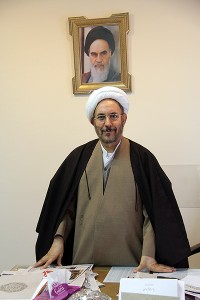Former Intelligence Minister Blasts Judiciary

Ali Younesi, former Intelligence Minister and President Hassan Rouhani’s Advisor on Ethnic and Religious Minority Affairs
In his interview with Mehr, Younesi said that the judicial process and methods employed by the Judiciary “have caused insecurity and lack of trust,” to the point where “people have distanced themselves from the judicial system.”
Ali Younesi, President Hassan Rouhani’s Advisor on Ethnic and Religious Minority Affairs, said, “Today, unfortunately, when an individual is released from prison, he does not feel ashamed at all, he is even proud! This wasn’t the case in the 1980s,” in his interview with Mehr.
“The process of reviewing crimes has to be lawful, transparent, and fair. Preventing suspects and convicts from visitation or access to a lawyer paves the way for the formation of corruption or oppression of defendants,” said Younesi, who is also a former Tehran Prosecutor. “Innocent individuals were summoned during [former Tehran Prosecutor, Judge] Mr. Mortazavi’s time, and ruined their reputation, and I have objected to this behavior,” said Ali Younesi.
“Those who have intelligence and have guns ignore the law. When a judge issues a verdict, the phones start ringing both from the Governor and from Members of the Parliament, and this means pressuring an independent judge,” added Ali Younesi.
Ali Younesi also criticized the absence of a “political crime law,” and the dissolution of Iran’s “Judicial Police.” “Unfortunately I have heard that the Judiciary has started businesses; this isn’t right at all,” he said.
There has been growing criticism against the Iranian Judiciary about its lack of independence from security organizations, the summary trials of political dissidents, activists and human rights lawyers on security charges, and the unfair and illegal sentences based solely on what is referred to as “the judge’s knowledge” in the absence of any evidence, or sometimes the suspect’s own confession, often extracted under duress and torture. In his several reports to UN bodies, Ahmed Shaheed, the UN Special Rapporteur on Human Rights in Iran, has highlighted the many violations of human rights committed or facilitated by the Iranian Judiciary. The Head of the Iranian Judiciary Sadegh Amoli Larijani and his brother Javad Larijani, who heads the Judiciary’s Human Rights Council, have repeatedly attacked Ahmed Shaheed for his reports, questioning his methods and at times even calling him names.
In a recent interview with Radio Farda, Hadi Ghaemi, the executive director of the International Campaign for Human Rights in Iran, criticized the process of trials in Iran and said there have been trials that lasted only five minutes and which led to death sentences for suspects.






